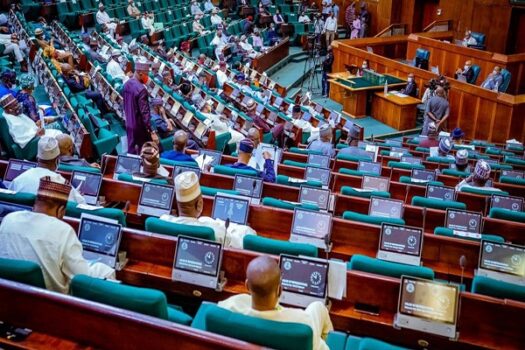 The House of Representatives has passed a bill proposing a return to the nation’s pre-independence anthem, “Nigeria, We Hail Thee.”
The House of Representatives has passed a bill proposing a return to the nation’s pre-independence anthem, “Nigeria, We Hail Thee.”
The bill, sponsored by House Leader Julius Ihonvbare, received expedited passage after a closed-door session. It proposes reinstating “Nigeria, We Hail Thee” as the official national anthem, replacing the current anthem, “Arise, O Compatriots,” adopted in 1978.
Proponents, like House Leader Ihonvbare, argue the old anthem serves as a more potent symbol of national unity and inspires a sense of duty. They believe it will foster renewed hope and commitment during challenging times. Supporters view the change as a step towards a brighter future. Hon. Ahmed Jaha (APC, Borno) suggests it represents a break from past failures and a chance to move forward with a fresh perspective.
Opponents, led by Minority Leader Kingsley Chinda, question the rationale behind returning to a colonial-era anthem. They argue it undermines the spirit of independence and national identity forged through the creation of “Arise, O Compatriots.”Chinda further argues that national problems require practical solutions, not symbolic gestures. He suggests focusing on regaining citizens’ trust and addressing pressing issues.
The legislation outlines specific situations requiring the performance of the national anthem, including government meetings, award ceremonies, and educational institutions. It also establishes guidelines for respectful conduct during anthem performances and mandates the creation of official recordings and standardized protocols for its rendition.
The bill now heads to the Senate for consideration. The debate over the national anthem’s future will likely continue, sparking discussions about national identity, historical legacies, and the path forward for Nigeria.

Supreme Court Invalidates National Lottery Act, Restricts Enforcement To FCT
House Of Reps Rejects Six-Year Single Term Bill For President, Governors
Senate Approves ₦1.77 Trillion Loan Request By President Tinubu
Finland Arrests Pro-Biafran Agitator Simon Ekpa On Terror Charges